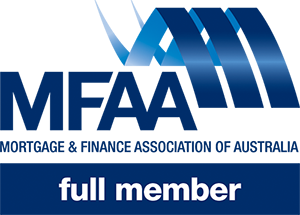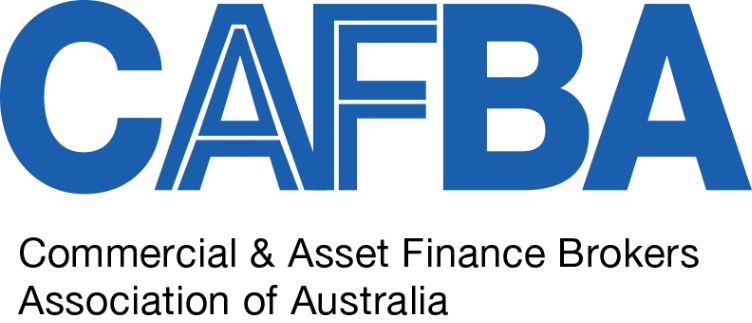It can be intimidating to navigate the complicated world of finance, particularly when looking for solutions that provide security and flexibility. Whether you’re a business owner looking to expand or an individual in need of financing for personal assets, understanding your options is crucial. This is where understanding what is a chattel mortgage becomes invaluable.
A chattel mortgage is a unique financing option where a loan is secured by movable assets. This provides versatile collateral choices and customised financial solutions for both individuals and companies.
What is a Chattel Mortgage – A Short Answer
In the world of financing, a chattel mortgage stands out for its adaptability and breadth of application. It’s essentially a financial arrangement where you can secure a loan using assets that are movable—think vehicles, machinery or even high-value electronics. This type of mortgage caters to a wide audience, offering the dual benefits of quick loan approvals and the flexibility to use various assets as collateral. Particularly for businesses, it’s a pathway to growth without the heavy upfront costs, and for individuals, it’s an opportunity to finance major purchases with terms that respect their financial realities.
Types of Chattel Mortgage
Chattel mortgages offer a specialised form of financing that caters to a broad spectrum of needs, as it provides a tailored solution for both individuals and businesses. By allowing borrowers to secure loans against movable property, chattel mortgages break the traditional mould of financing with their versatility and accessibility across various sectors. From personal assets to commercial equipment, this type of mortgage adapts to the unique demands of its users, offering financial solutions that are both pragmatic and innovative.
Industrial or Commercial Equipment Financing
Industrial or commercial equipment financing is a cornerstone of chattel mortgages, as it offers businesses the opportunity to secure loans against machinery, factory equipment and other movable assets critical to their operations. This type of financing is vital for companies looking to expand their capabilities or update their equipment without the heavy upfront cost, thereby preserving cash flow and promoting business growth.
Vehicle Financing: Cars, Trucks and Machinery
Vehicle financing is another significant aspect of chattel mortgages, which covers cars, trucks and heavy machinery. This flexibility makes it an attractive option for a wide range of needs, from individual car purchases to financing fleets for business purposes. The ability to use the vehicle itself as collateral simplifies the process, providing a straightforward path to ownership.
Difference Between Chattel Mortgage and Traditional Mortgage
Understanding the differences between chattel and traditional mortgages is crucial for borrowers navigating the complex world of financing. By distinguishing between the types of collateral and the specific terms each mortgage offers, individuals and businesses can make informed decisions that align with their financial strategies and long-term goals.
Collateral Differences: Movable vs. Immovable Property
The fundamental difference between chattel and traditional mortgages lies in the collateral. Chattel mortgages are secured against movable property, meaning the assets can be transported from one location to another without altering their nature or value. Traditional mortgages, on the other hand, are secured against immovable property like land or buildings. This distinction significantly affects the flexibility and utility of the loan, catering to different needs and scenarios.
Loan Terms and Conditions
When it comes to loan terms and conditions, chattel mortgages often offer shorter repayment periods and higher interest rates compared to traditional mortgages. This is partly due to the perceived higher risk associated with movable assets, which can depreciate more quickly than immovable property. However, the faster approval processes and lower initial costs associated with chattel mortgages can offset these factors, making them an appealing option for many borrowers.
Impact on Interest Rates and Loan Approval Process
Chattel mortgages typically have a different impact on interest rates and the loan approval process. The interest rates can be higher due to the higher risk of financing movable assets, but the approval process is usually quicker and less difficult than that of traditional mortgages. This efficiency is a significant advantage for borrowers needing quick access to funds or those who may not qualify for traditional mortgage financing due to stringent requirements or the nature of the collateral.
Benefits of Chattel Mortgage
Chattel mortgages offer a range of advantages that can be particularly beneficial for individuals and businesses. These benefits not only make chattel mortgages an attractive financing option but also provide significant financial flexibility and potential tax advantages.
Flexibility in Collateral Options
One of the standout benefits of chattel mortgages is the flexibility in collateral options. Unlike traditional mortgages that are limited to immovable property like land or buildings, chattel mortgages allow borrowers to use movable assets as collateral. This can include vehicles, machinery and other high-value equipment, providing a broader range of financing options and opportunities to leverage assets for growth.
Faster Processing and Approval Times
Another significant advantage is the faster processing and approval times associated with chattel mortgages. The streamlined process is designed to minimise bureaucratic hurdles for quicker access to needed funds. This efficiency is particularly valuable for businesses that require prompt financial support to capitalise on opportunities or manage cash flow effectively.
Tax Benefits and Depreciation Advantages for Businesses
For businesses, chattel mortgages can offer tax benefits and depreciation advantages. The interest payments on a chattel mortgage can often be tax-deductible, and the ability to claim depreciation on the financed asset can further reduce taxable income. These fiscal benefits enhance the attractiveness of chattel mortgages for companies looking to optimise their investment in movable assets.
Drawbacks of Chattel Mortgage
While chattel mortgages present numerous advantages, some drawbacks must be carefully considered to ensure they align with one’s financial strategy and capabilities. These drawbacks highlight the importance of thorough financial planning and assessment before committing to a chattel mortgage.
Higher Interest Rates Compared to Traditional Mortgages
One of the primary considerations is the higher interest rates compared to traditional mortgages. The increased rates are often a reflection of the higher risk associated with financing movable assets, which can depreciate more quickly than immovable property. This factor can lead to higher overall costs of borrowing, necessitating careful financial analysis to determine the feasibility and cost-effectiveness of a chattel mortgage for the borrower.
Shorter Repayment Periods
Chattel mortgages typically feature shorter repayment periods than traditional mortgages. While this can mean higher monthly payments, it also results in the debt being cleared sooner. Borrowers must evaluate their cash flow and financial stability to ensure they can comfortably meet the repayment schedule without straining their finances.
Risks of Repossession
The risks of repossession are another critical aspect to consider. If a borrower fails to make payments, the lender has the right to repossess the collateralized asset. This risk underscores the importance of financial diligence and the need to maintain a stable payment record. Prospective borrowers should assess their repayment capacity and consider the potential impact on their assets before opting for a chattel mortgage.
How to Apply for a Chattel Mortgage?
Applying for a chattel mortgage is a process that requires careful preparation and understanding of the specific requirements involved. This process is designed to be efficient, allowing quick access to funds when needed.
Understanding the Eligibility Criteria
The first step in applying for a chattel mortgage is to understand the eligibility criteria. These criteria can vary depending on the lender but generally include the applicant’s credit history, the value and type of collateral, and the purpose of the loan. Ensuring that you meet these criteria is crucial for a successful application.
Preparing the Required Documentation
Next, applicants must prepare the required documentation. This typically includes proof of income, identification documents, details about the collateral (such as vehicle registration or proof of ownership) and possibly a business plan if the chattel mortgage is for commercial purposes. Gathering these documents in advance can significantly streamline the application process.
Following the Steps in the Application Process
Finally, following the steps in the application process involves submitting the application form along with the necessary documentation to the lender, undergoing a credit check and, if approved, agreeing to the loan terms and conditions. The process concludes with the signing of the mortgage agreement, after which the funds become available to the borrower.
Considerations Before Opting for a Chattel Mortgage
Choosing to secure a chattel mortgage is a significant financial decision that requires careful thought and planning.
Assessing Financial Stability and Repayment Capacity
Assessing financial stability and repayment capacity is fundamental before taking on a chattel mortgage. Borrowers should thoroughly evaluate their income, expenses and existing financial obligations to ensure they can comfortably manage the loan repayments without compromising their financial health.
Understanding the Terms and Conditions
It’s also critical to understand the terms and conditions of the chattel mortgage agreement. This includes the interest rate, repayment schedule, fees and any penalties for late payments or early settlement. Fully comprehending these terms helps avoid surprises and ensures alignment with the borrower’s financial planning.
Consulting with Financial Advisors or Legal Counsel
For additional clarity and guidance, consulting with financial advisors or legal counsel can provide valuable insights into the suitability and implications of a chattel mortgage for your specific situation. Professional advice can aid in navigating the complexities of financial agreements and making an informed decision.
Tax Implications for Businesses
One of the key considerations for businesses is the tax implications of a chattel mortgage. Interest payments on a chattel mortgage can often be deducted as business expenses, and the ability to claim depreciation on the financed asset can reduce taxable income. These benefits can make chattel mortgages particularly attractive for businesses looking to optimise their financial strategies.
Selecting the right option based on needs and financial goals involves weighing the benefits against the potential drawbacks and considering the specific requirements of personal versus business financing. Whether aiming for personal financial flexibility or business growth, understanding these factors is essential for making an informed decision that aligns with long-term objectives.
Final Thoughts
A chattel mortgage represents a versatile and accessible financing option for those looking to leverage movable assets. Whether it’s for personal growth or advancing business objectives, this type of loan provides a tailored solution that meets diverse needs. With its benefits like flexibility in collateral, quick processing times and potential tax advantages, it’s no wonder that chattel mortgages are becoming a popular choice. However, it’s essential to weigh these advantages against potential drawbacks, such as higher interest rates and the risk of repossession. As with any financial decision, thorough research, and perhaps a consultation with a financial advisor, are recommended to ensure that a chattel mortgage aligns with your financial strategy and goals.




